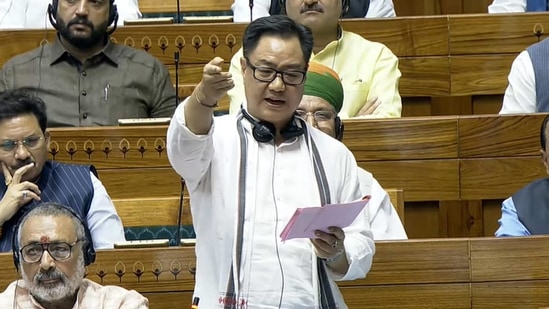Section 40 of Waqf Act
The Waqf Amendment Bill 2025, introduced in the Lok Sabha, aims to amend the existing Waqf Act of 1995. The most contentious change involves the removal of Section 40. This has sparked debate between the ruling coalition and opposition parties. Critics argue that omitting this section undermines the Waqf Board’s authority, rendering it ineffective.
About the Waqf Board
The Waqf Board is a statutory body responsible for managing Waqf properties in India. Waqf properties are those donated for religious or charitable purposes in Islam. The Board’s primary role is to oversee these properties, ensuring they are used according to the wishes of the donors.
Why Section 40?
Section 40 of the Waqf Act grants the Waqf Board the authority to determine whether a property is a Waqf property. This section empowers the Board to collect information and conduct inquiries regarding properties it suspects to be Waqf. The Board’s decisions are final unless challenged in a Waqf Tribunal. This provision ensures that the Board operates independently of governmental influence.
Parts of Section 40
There are four parts to this section:
- The Waqf Board can gather information about any property it believes might be Waqf and make a decision accordingly.
- Once the Waqf Board makes a decision, it cannot be challenged by any executive authority, making its decision final.
- If a property is registered under another trust or society but the Waqf Board believes it is actually Waqf property, it can investigate. If the board confirms it as Waqf, it can ask the trust or society to either register it under the Waqf Act or explain why it should not be registered.
- After reviewing the response, the board’s final decision stands unless changed by a Waqf Tribunal.
Reasons for Omission of Section 40
The Centre contends that removing the Section will enhance transparency by eliminating bureaucratic hurdles and ensuring clearer accountability in the administration of Waqf properties. Additionally, it asserts that this move will improve efficiency in managing these properties, allowing for better utilization and oversight to prevent mismanagement or disputes.
Implications of Omitting Section 40
The removal of Section 40 in the amendment Bill raises concerns about the Board’s autonomy. Critics argue that without this provision, the Board may lose its ability to assert control over Waqf properties. The authority to determine the nature of properties may shift to government officials, potentially leading to misuse of power. This could undermine the intended purpose of Waqf properties.
Month: Current Affairs - April, 2025
Category: Legal & Constitution Current Affairs








